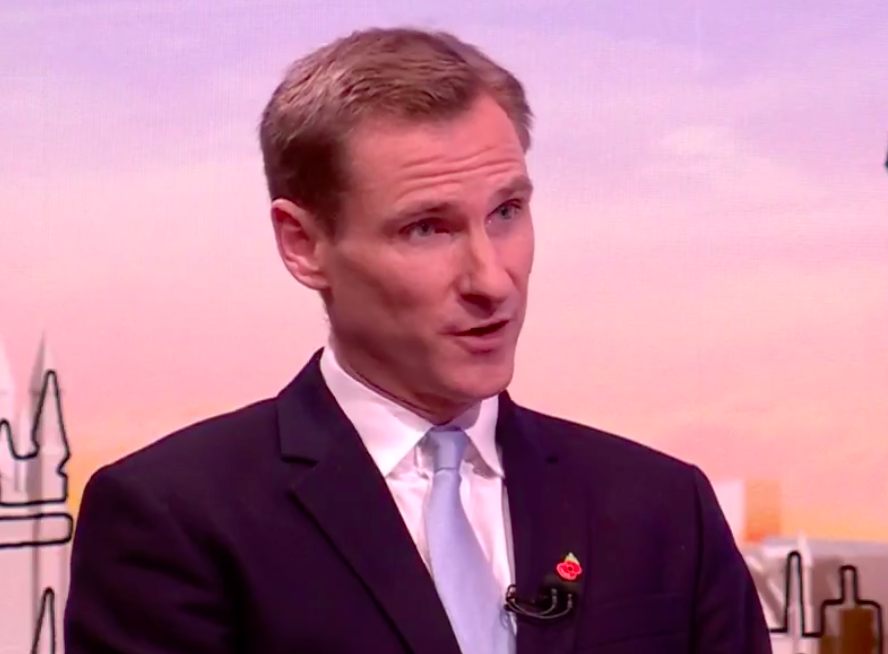The shadow home secretary struggled to explain how stop and search would have been used in the train knife attack
Chris Philp has been grilled over his call for greater use of stop and search powers following Saturday’s knife attack on a train from Doncaster to London, which left 11 people injured.
One, the driver of the LNER train, remains in a “critical but stable condition”.
Writing in The Telegraph, Philp partly blamed the Left’s for limiting stop and search powers, and said that following the attack, the use of stop and search must “dramatically increase”.
Philp said: “It’s particularly declined in London, under Sadiq Khan, where it’s gone down by something like 60%.”
In the article, he wrote “Are they [the Left] seriously saying that the perpetrator of the Huntingdon train atrocity should not have been stopped and searched if encountered?”.
On BBC Radio4 Today journalist Anna Foster quizzed Philp on his claims, asking: “But as you say, we don’t know anything about that individual so why would they have been stopped and searched?”.
Philp responded: “Well because there are grounds for suspicion to stop and search someone.”
The presenter again asked Philp on what basis the suspect would have been stopped in this case, “because we only know the person’s age, gender and ethnicity, so if they were getting on a train what would be the reason to stop and search them?”.
The Croydon South MP again said that it would depend on “if there was an indicator for suspicion”, before adding that at Conservative Party conference, he said in “high crime hotspots” police should be able to use stop and search powers “without suspicion”.
Foster reminded Philp that the crime took place at a train station. He responded claiming that train stations are an example of a “high crime area”.
“What I’m trying to get to here is are you suggesting this individual should have been stopped and searched purely based on the colour of their skin? Because that’s what this article suggests,” Foster said.
Philp responded: “No it doesn’t, categorically not. I’m absolutely not saying that. I’m shocked you’ve even suggested it.”
Research by the Centre for Crime and Justice and The Youth Endowment Fund found that stop and search is “one of the least effective tactics to tackle violence and knife crime”. It has also been found to disproportionately target black people.
Philp said he rejected this evidence, and that he has spoken to senior police officers and the families of victims of knife crime, who wish attackers had been stopped and searched.
“We know it takes knives off the streets, we know it acts as a deterrent and yet left-wing politicians are against it, and it makes the streets less safe, it makes train stations less safe as well,” he said.
However, Foster pointed out that as home secretary in May 2024, James Cleverly said England and Wales already had some of the toughest knife crime laws in the world.
“Now they are the same laws, it’s just that you’re not in government anymore. So what is different about them that they’re now not good enough?,” Foster said.
Philp said he wasn’t home secretary at the time, but Foster reminded him he was a police and crime minister.
The shadow home secretary said: “We tightened up the laws around mandatory minimum sentences for knife possession, but I would like to see those tightened up even further.”
Foster challenged him: “Why didn’t you do that then? People will think that it sounds opportunistic that you describe those laws as extremely fit for purpose when you were in government and you’re now saying that they’re not because you’re in opposition.”
Olivia Barber is a reporter at Left Foot Forward
Left Foot Forward doesn’t have the backing of big business or billionaires. We rely on the kind and generous support of ordinary people like you.
You can support hard-hitting journalism that holds the right to account, provides a forum for debate among progressives, and covers the stories the rest of the media ignore. Donate today.




